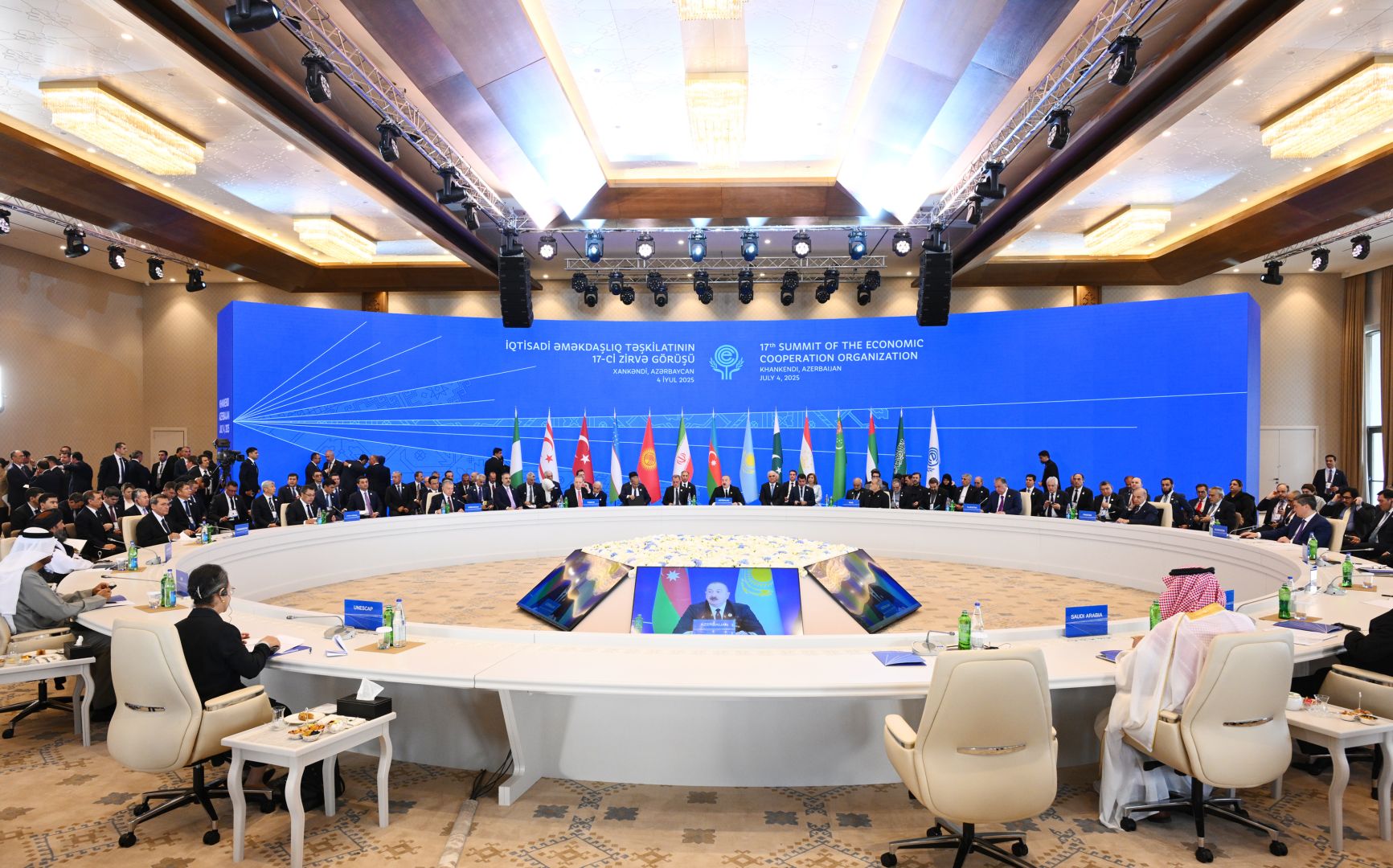ECO Summit in Khankendi marks turning point in South Caucasus geopolitics

The 17th Summit of the Economic Cooperation Organization (ECO), held in Garabagh’s city of Khankendi, represents far more than a routine diplomatic event. It symbolizes a profound geopolitical and economic shift in the South Caucasus region, marking Azerbaijan’s triumphant return to its ancestral lands after decades of conflict and occupation.
Hosting the summit in liberated territories is a powerful assertion of Azerbaijan’s restored sovereignty and territorial integrity. Unlike previous ECO summits held in the capital Baku, the decision to convene in Khankendi carries substantial symbolic weight. It signals to the international community that Azerbaijan is not only reclaiming its territory but also positioning Garabagh as a hub for regional cooperation and development.
The region’s rapid reconstruction, as highlighted by President Ilham Aliyev, underscores the country’s commitment to transforming war-torn lands into centers of economic activity and diplomatic engagement. This transformation is not just about infrastructure; it is about restoring national dignity and demonstrating resilience after years of occupation and ethnic conflict.
President Ilham Aliyev’s speech laid bare the depth of Armenia’s decades-long occupation, ethnic cleansing, and cultural destruction in the region. The scale of devastation - cultural monuments destroyed, mosques desecrated, cemeteries vandalized - adds a humanitarian dimension to the conflict’s legacy. Moreover, the presence of over a million landmines and the tragic loss of lives due to these explosives highlight ongoing security challenges that complicate post-conflict recovery.
From an analytical perspective, this context illustrates the enduring consequences of frozen conflicts and the complexities involved in peacebuilding. The war’s aftermath is not merely about territorial control but also involves reconciliation, demining, cultural restoration, and the return of displaced populations.
The “Great Return” program is central to Azerbaijan’s strategy to solidify its hold on the liberated territories. Facilitating the return of displaced persons and rebuilding cities and villages are essential for establishing lasting peace and stability. However, the process also carries risks. Resettling tens of thousands of people in formerly occupied lands requires careful planning to ensure security, economic sustainability, and social cohesion.
Furthermore, the rights of deported Western Azerbaijanis and their potential return to ancestral lands inside Armenia add a complex layer to regional diplomacy. The unanimous adoption of a resolution by the Organization of Islamic Cooperation supporting their right to return reflects broader international acknowledgment of this issue. However, Armenia’s resistance to dialogue on this matter poses a challenge to reconciliation efforts and peacebuilding.
Economically, Azerbaijan’s active role in the ECO region positions it as a key player in fostering regional integration and development. The summit’s location in Garabagh could catalyze further investments and economic activity in a region previously marred by conflict.
President Aliyev emphasized Azerbaijan’s favorable investment climate and highlighted the country’s significant foreign investment inflows, nearly $350 billion over two decades. This economic strength underpins Azerbaijan’s ambitions to be a regional energy and transport hub. Its strategic position on major East-West and North-South corridors and its status as a key energy exporter to 12 countries reinforce its role in regional connectivity and energy security.
Hosting initiatives such as the first ECO Week and plans to establish research and clean energy centers signal Azerbaijan’s commitment to diversifying the regional economy and aligning with global sustainable development goals.
Azerbaijan is also taking tangible steps to institutionalize its leadership within the ECO by hosting two major initiatives: the ECO Research Centre and the ECO Clean Energy Centre. Work is currently underway to ensure these centers become operational in the near future. These institutions signal a strategic shift toward knowledge-driven regional cooperation and sustainable energy development, in line with global climate and innovation agendas. The Research Centre is expected to serve as a think tank for economic policy, regional integration, and development strategies across ECO countries. Meanwhile, the Clean Energy Centre aligns with Azerbaijan’s increasing focus on green energy, especially as the country prepares to host COP29, positioning itself as a regional hub for energy transition and climate diplomacy.
By championing these initiatives, Azerbaijan aims not only to solidify its influence in ECO's institutional structure but also to diversify its soft power tools - moving from being seen primarily as an oil and gas exporter to a convening power in innovation, sustainability, and multilateral dialogue.
Despite these positive developments, challenges remain. The legacy of conflict, unresolved political disputes, and security threats from landmines and ethnic tensions complicate regional cooperation. Moreover, the success of initiatives like the “Great Return” depends on continued political will, international support, and effective governance.
The summit’s outcomes will likely hinge on how effectively ECO member states address these challenges and whether the organization can serve as a platform for conflict resolution and economic integration. Azerbaijan’s leadership role and its ability to leverage the summit’s symbolic and strategic importance could be crucial in shaping the South Caucasus’s future stability and prosperity.
The 17th ECO Summit in Khankendi is a landmark moment not only for Azerbaijan but for the broader region. It encapsulates the intersection of geopolitics, historical justice, economic ambition, and regional cooperation.
Here we are to serve you with news right now. It does not cost much, but worth your attention.
Choose to support open, independent, quality journalism and subscribe on a monthly basis.
By subscribing to our online newspaper, you can have full digital access to all news, analysis, and much more.
You can also follow AzerNEWS on Twitter @AzerNewsAz or Facebook @AzerNewsNewspaper
Thank you!

